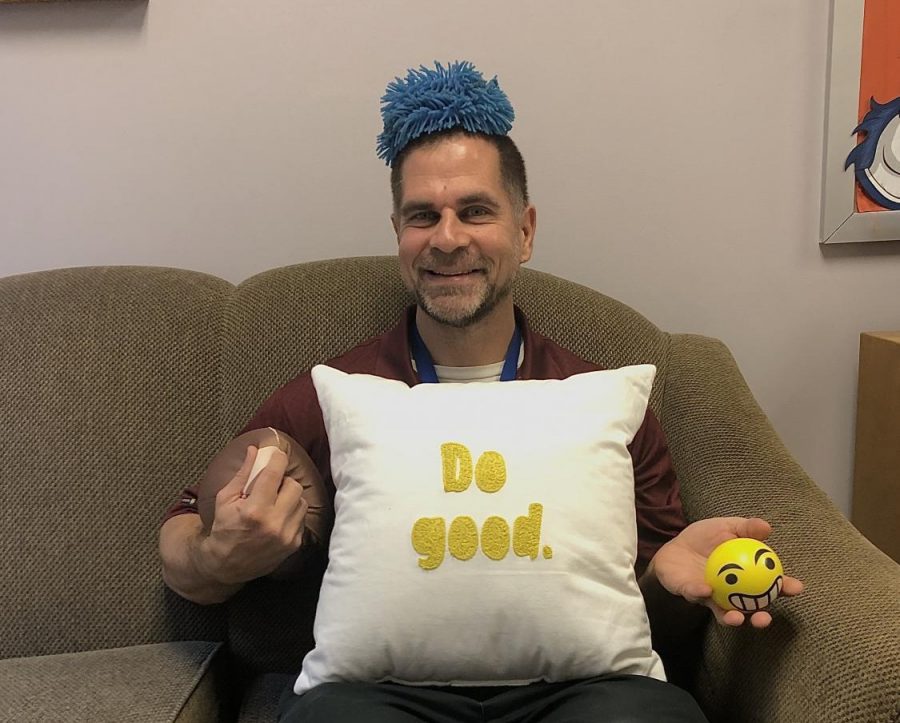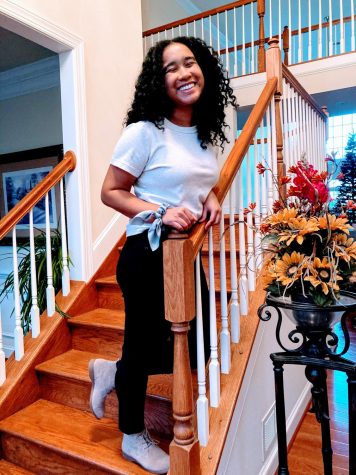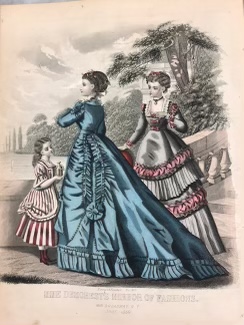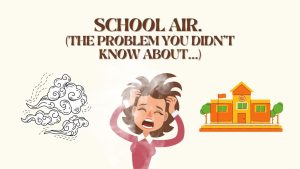School counselors support each other, practice self-care to be their best for students
School counselor Mike Ryan with his stress relievers. Stress relief is an integral part of being able to be emotionally prepared to fully support students.
November 5, 2019
It’s been a hard day’s night for a counselor with meetings, scheduling, and taking care of students. But just a sprinkle of quality time with family, working out, hugging a stuffed animal, or hanging out with friends can help them feel better.
“[Counseling] is a really tough job and we deal with a lot of things on a daily basis,” school counselor Krista Anders said. “[It is] really [important to] make sure that we take care of ourselves, so we can take care of others.”
The counseling department meets every other Wednesday to discuss professional topics, their personal lives, and how they can encourage or help each other. With 200-300 students each, counselors tend to hear a lot of upsetting situations about students’ lives, so it is crucial for them to practice self-care.
“There’s been a lot of stuff going — bad things with students and with us personally as counselors [such as] death — friends passing away, family members passing away, kids passing away, sickness,” school resource counselor Paul Young said. “Nothing that we haven’t dealt with in the past, but it seems like within the first few weeks of school… there have been some rough situations.”
The first meeting of the school year was a particularly emotional one as counselors shared different ways that they take care of themselves when they are mentally exhausted.
“There are always ways of improving, and, you know, maybe something works better. [Something] that you didn’t know or hadn’t tried yet. It’s always good to be open to those kinds of things,” school counselor Jessica Salomon said.
“As counselors and educators, we don’t appreciate our successes very well because we move right on to what the next task or problem is,” school counselor Mike Ryan said. “So we don’t take time to even think about ourselves and our job because we’re constantly thinking about the next person.”
Counselors work diligently to help students in every way, sometimes even by sharing personal stories. They also work with their colleagues to make sure that they are okay to talk with students about a subject that is sensitive to them. If not, another counselor may step in to help that student.
“There’s a lot that [students] go through that some counselors have also been through, so there’s some stuff that hits home. I think it’s important to realize what those things are. [It’s important for us to recognize] what we’ve dealt with and what might trigger us,” Salomon said.
Watkins Mill High School’s counseling department is a close-knit group. “It’s really great when you work with people that have been in [counseling] for a long time and you’re able to lean on one another and ask questions and get support,” Anders added. “We are always there for each other. We know how to work together and it just makes me very happy to work in the department that I work in.”
“As counselors, we really need to be aware of our own emotional boundaries. You can’t own other people’s problems. It’s a fine balance between being compassionate and also protecting yourself,” Ryan said.










